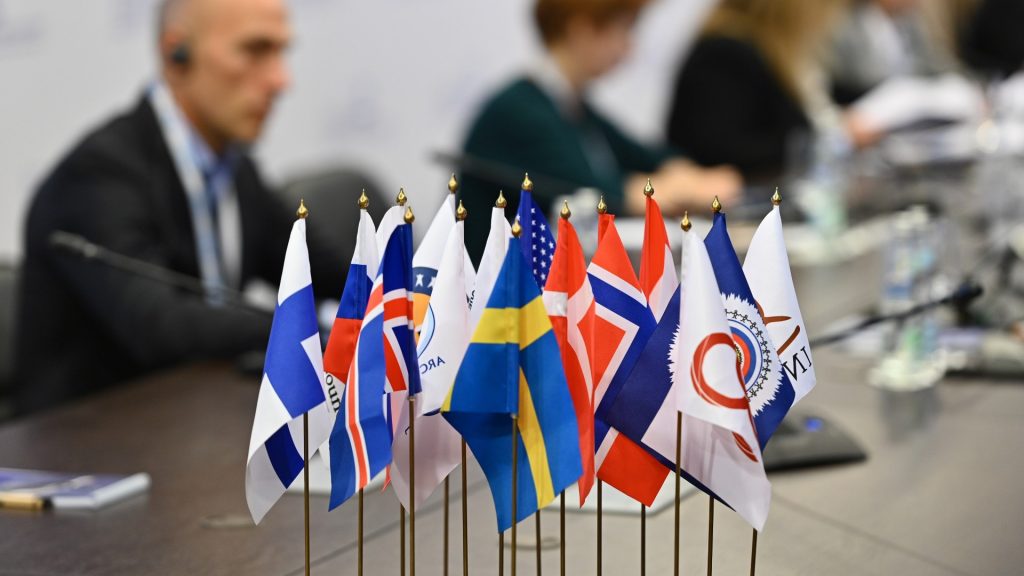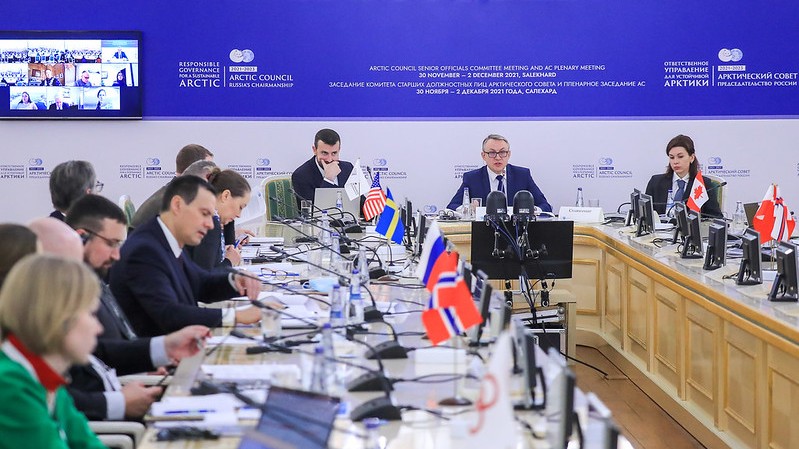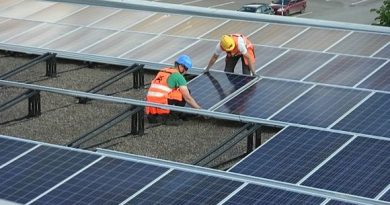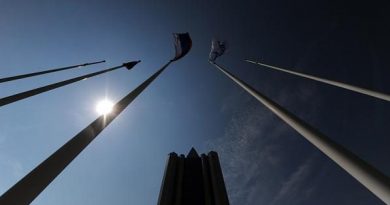Arctic Council wraps up two-day meeting in Salekhard, Russia

The Arctic Council, and international forum made up of the world’s eight northern countries, wrapped up their two-day meeting in Salekhard, Russia on Thursday.
It was the first Senior Arctic Officials’ meeting held since Russia took over the forum’s two-year rotating chairmanship.
Russia’s chairmanship priorities include sustainable development, environmental protection, socio-economic development and strengthening of the Arctic Council.
The body’s 10-year strategic plan, youth engagement as well as updates on the Council’s current projects were on the agenda, along with wildfires issues in the North, climate change impacts on the Arctic, the health issues facing Arctic inhabitants and preservation of the marine environment.
“As climate change greatly impacts the Arctic marine environment, the Arctic states hold responsibility to safeguard the future development of the region and develop models for stewardship,” ambassador Nikolay Korchunov, chair of the Senior Arctic Officials, said at a press conference after the meeting.
“This requires both better understanding of the changing Arctic marine environment and enhanced cooperation among the Arctic states, local inhabitants, external actors and international legal frameworks. As Russia has the largest coastline in the Arctic, Russia has a special role to play in marine cooperation.”
Arctic Economic Council
Representatives of the Arctic Council and the Arctic Economic Council (AEC) also met at the Salekhard gathering.
It was the second meeting since the two bodies signed a Memorandum of Understanding in 2019 in order to promote cooperation on shared goals.
The AEC is separate from the Arctic Council, but chairmanship of the body rotates among the northern circumpolar countries to mirror the Arctic Council’s rotating two-year chairmanships.
The AEC was established during Canada’s last Arctic council chairmanship (2013-2015) and was initially conceived as an entity to advise the Arctic Council on business issues.
Year formed: 1996
Arctic Council Members: Canada, Denmark (Greenland), Finland, Iceland, Norway, Sweden, Russia, United States
Permanent Participants: Aleut International Association, Arctic Athabaskan Council, Gwich’in Council International, Inuit Circumpolar Council, Russian Association of Indigenous Peoples of the North, Saami Council
Current Chair: Russia (2021-2023)
But the AEC has since evolved to facilitate business-to-business activities in the North and promote responsible economic development. AEC members include both Arctic-based companies and groups, enterprises based elsewhere in the world, as well as Indigenous groups and corporations. The AEC is open to small and medium sized businesses, as well as large companies.
“The Arctic Council and the Arctic Economic Council share the common goal of safeguarding the well-being, safety and prosperity of all Arctic inhabitants as well as creating sustainable regional economies in a changing Arctic environment,” Korchunov said.
“In light of increased economic interest and activities in the Arctic, enhanced cooperation is ever more important and in more greater demand.”

Next meeting in May 2022
Korchunov did not take on-the-spot questions during the Salekhard press conference and only pre-submitted questions were permitted.
The next Senior Arctic Officials plenary meeting will take place in Arkhangelsk, a city in the western Arctic region of Russia, in May 2022.
Write to Eilís Quinn at eilis.quinn(at)cbc.ca
Related stories from around the North:
Canada: Canada supports greater voice for Indigenous organizations on Arctic Council, Eye on the Arctic
Finland: Finnish PM stresses importance of Arctic Council for region’s stability amidst climate change, Yle News
Greenland: Greenland’s more prominent role on Arctic Council important signal to int’l community says foreign minister, Eye on the Arctic
Iceland: With U.S. climate drama behind them, can the Arctic Council turn the page in Reykjavik?, Eye on the Arctic
Norway: Norway’s FM confirms participation in upcoming Arctic Council ministerial, The Independent Barents Observer
Russia: Return to form for Arctic Council as Russia assumes leadership from Iceland, Eye on the Arctic
United States: Putin, Biden talk Northern Sea Route, The Independent Barents Observer



